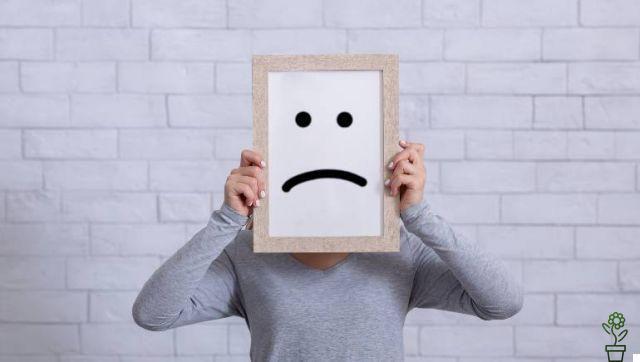
We all have a prejudice of negativity and often succumb to its influence. It is as if our brain has a magnet to fix the negative experiences easily forgetting the positive ones. For example, you may remember exactly where you were and what you were doing when the September 11, 2001 attack occurred, but you may not remember what you were doing the following month. This negativity bias helps keep us safe, but it can also sink us into pessimism. This is why it is important to learn to recognize it and know how to manage it.
What is negativity bias?
Negativity bias, also known as negativity bias or negativity effect, refers to our propensity to pay attention, learn and use negative rather than positive information. It is a kind of asymmetry in the way we process events and understand the world, which causes negative stimuli to elicit faster and more prominent responses than positive ones.
Negativity bias can explain why we remember insults more than compliments and keep them longer in our mind. It also explains why we react more intensely to adverse events or why we pay more attention to negative than positive news. This bias also explains why, although we experience several positive events during the day, at night we will tend to focus on the one negative thing that happened to us.
This tendency towards negativity is scientifically proven. A study conducted at the University of Michigan revealed that negative news tends to dominate the media because it generates more psychophysiological reactions in readers, who tend to be more attentive to negative than positive news.
We have a brain that is hyper-responsive to everything negative
An experiment conducted by psychologist John Cacioppo highlighted the tendency of our brain to react more intensely to stimuli it considers negative. In his study, he showed a group of people a series of images that elicited positive, negative, or neutral feelings. Meanwhile it recorded electrical activity in the cerebral cortex, which reflects the level of information processing.
He thus saw that stimuli that generate negative emotions such as fear or anger cause an increase in electrical activity in the brain. In practice, our brain regularly evaluates the risks that people and situations can pose for safety reasons. Negative events capture our attention more than positive ones and generate greater activation in the brain.
Our tendency to pay more attention to bad news is likely an evolutionary adaptation to protect us from harm, as we need to be able to quickly spot threat signals to avoid them.
The problem starts when the bias of negativity spreads to all spheres of life, fueling a pessimistic view or making us believe that the world is a dangerous and hostile place where we can never let our guard down. So it is not difficult to fall into anxiety.
Indeed, a study conducted at the University of Lübeck found that "the formation of beliefs about oneself is surprisingly negatively unbalanced in situations that could be opportunities for improvement." This means that our tendency towards negativity also deprives us of opportunities for growth and learning.
Magic Proportion: How Much Positivity Do We Need to Compensate for Negativity Bias?
We can offset the bias of negativity by focusing on the positives to get a more balanced perspective. But due to the disproportionate weight our brains place on negative events, this balance doesn't mean a 50-50 ratio.
John Gottman and Robert Levenson attempted to find out what the "magic proportion" is. To do this, they analyzed hundreds of couples. They carefully recorded the amount of time couples spent discussing or interacting positively. Thus they discovered that the most balanced and satisfied couples in their relationship are those who know how to measure the amount of positivity and negativity.
The magic ratio is five to one. In other words, five times more positive feelings and interactions must occur in a relationship to counteract a negative event. This relationship applies to the other spheres of our life. This explains why occasional positive experiences, such as a birthday party or travel, are pleasant, but they don't have the necessary impact on our brains to nullify the negativity bias of so many small negative events. We need to make sure we have small, frequent positive experiences to tip the balance towards happiness.
In addition to savoring the positive moments, to maximize their impact on our brain it is also important to learn to silence the negative internal dialogue. We need to start paying more attention to the types of thoughts that go through our mind.
After an event, even a positive one, we could focus on the small details that went wrong or weren't perfect. When these thoughts come into play, we need to apply cognitive defusion techniques to prevent them from harming us.
It is also convenient that we learn to reevaluate the situation. If we realize that we are interpreting something in a negative way or focus only on the negative aspects, we must focus on finding the positive. Of course, it's not about ignoring the potential dangers, it's just about developing a more balanced view to offset the bias of negativity we all have.


























